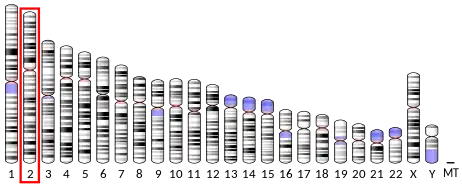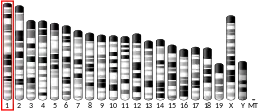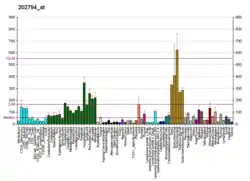| INPP1 | |||||||||||||||||||||||||||||||||||||||||||||||||||
|---|---|---|---|---|---|---|---|---|---|---|---|---|---|---|---|---|---|---|---|---|---|---|---|---|---|---|---|---|---|---|---|---|---|---|---|---|---|---|---|---|---|---|---|---|---|---|---|---|---|---|---|
| Identifiers | |||||||||||||||||||||||||||||||||||||||||||||||||||
| Aliases | INPP1, inositol polyphosphate-1-phosphatase | ||||||||||||||||||||||||||||||||||||||||||||||||||
| External IDs | OMIM: 147263 MGI: 104848 HomoloGene: 1655 GeneCards: INPP1 | ||||||||||||||||||||||||||||||||||||||||||||||||||
| |||||||||||||||||||||||||||||||||||||||||||||||||||
| |||||||||||||||||||||||||||||||||||||||||||||||||||
| |||||||||||||||||||||||||||||||||||||||||||||||||||
| |||||||||||||||||||||||||||||||||||||||||||||||||||
| |||||||||||||||||||||||||||||||||||||||||||||||||||
| Wikidata | |||||||||||||||||||||||||||||||||||||||||||||||||||
| |||||||||||||||||||||||||||||||||||||||||||||||||||
Inositol polyphosphate 1-phosphatase is an enzyme that, in humans, is encoded by the INPP1 gene.[5][6] INPP1 encodes the enzyme inositol polyphosphate-1-phosphatase, one of the enzymes involved in phosphatidylinositol signaling pathways. This enzyme removes the phosphate group at position 1 of the inositol ring from the polyphosphates inositol 1,4-bisphosphate and inositol 1,3,4-trisphophosphate.[6]
References
- 1 2 3 GRCh38: Ensembl release 89: ENSG00000151689 - Ensembl, May 2017
- 1 2 3 GRCm38: Ensembl release 89: ENSMUSG00000026102 - Ensembl, May 2017
- ↑ "Human PubMed Reference:". National Center for Biotechnology Information, U.S. National Library of Medicine.
- ↑ "Mouse PubMed Reference:". National Center for Biotechnology Information, U.S. National Library of Medicine.
- ↑ York JD, Veile RA, Donis-Keller H, Majerus PW (Jul 1993). "Cloning, heterologous expression, and chromosomal localization of human inositol polyphosphate 1-phosphatase". Proc Natl Acad Sci U S A. 90 (12): 5833–7. Bibcode:1993PNAS...90.5833Y. doi:10.1073/pnas.90.12.5833. PMC 46817. PMID 8390685.
- 1 2 "Entrez Gene: INPP1 inositol polyphosphate-1-phosphatase". Retrieved 2012-07-31.
Further reading
- Majerus PW, Ross TS, Cunningham TW, et al. (1990). "Recent insights in phosphatidylinositol signaling". Cell. 63 (3): 459–65. doi:10.1016/0092-8674(90)90442-H. PMID 2225061. S2CID 29563486.
- Zhang X, Majerus PW (1998). "Phosphatidylinositol signalling reactions". Semin. Cell Dev. Biol. 9 (2): 153–60. doi:10.1006/scdb.1997.0220. PMID 9599410.
- Steen VM, Løvlie R, Osher Y, et al. (1998). "The polymorphic inositol polyphosphate 1-phosphatase gene as a candidate for pharmacogenetic prediction of lithium-responsive manic-depressive illness". Pharmacogenetics. 8 (3): 259–68. doi:10.1097/00008571-199806000-00008. PMID 9682271.
- Løvlie R, Gulbrandsen AK, Molven A, Steen VM (2000). "Genomic structure and sequence analysis of a human inositol polyphosphate 1-phosphatase gene (INPP1)". Pharmacogenetics. 9 (4): 517–28. PMID 10780272.
- Patel S, Yenush L, Rodríguez PL, et al. (2002). "Crystal structure of an enzyme displaying both inositol-polyphosphate-1-phosphatase and 3'-phosphoadenosine-5'-phosphate phosphatase activities: a novel target of lithium therapy". J. Mol. Biol. 315 (4): 677–85. doi:10.1006/jmbi.2001.5271. PMID 11812139.
- Piccardi MP, Ardau R, Chillotti C, et al. (2002). "Manic-depressive illness: an association study with the inositol polyphosphate 1-phosphatase and serotonin transporter genes". Psychiatr. Genet. 12 (1): 23–7. doi:10.1097/00041444-200203000-00003. PMID 11901356. S2CID 24222446.
- Strausberg RL, Feingold EA, Grouse LH, et al. (2003). "Generation and initial analysis of more than 15,000 full-length human and mouse cDNA sequences". Proc. Natl. Acad. Sci. U.S.A. 99 (26): 16899–903. Bibcode:2002PNAS...9916899M. doi:10.1073/pnas.242603899. PMC 139241. PMID 12477932.
- Ota T, Suzuki Y, Nishikawa T, et al. (2004). "Complete sequencing and characterization of 21,243 full-length human cDNAs". Nat. Genet. 36 (1): 40–5. doi:10.1038/ng1285. PMID 14702039.
- Gerhard DS, Wagner L, Feingold EA, et al. (2004). "The status, quality, and expansion of the NIH full-length cDNA project: the Mammalian Gene Collection (MGC)". Genome Res. 14 (10B): 2121–7. doi:10.1101/gr.2596504. PMC 528928. PMID 15489334.
This article is issued from Wikipedia. The text is licensed under Creative Commons - Attribution - Sharealike. Additional terms may apply for the media files.




